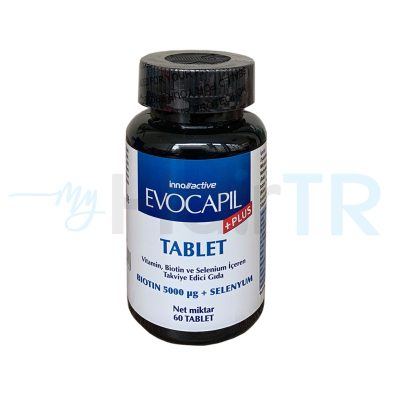Medicines that Accelerate Hair Growth After Hair Transplantation
When it comes to a successful hair transplant result, the most critical steps you should pay attention to are undoubtedly the post-hair transplant care and the medications used after a hair transplant. There are some medications that should be used as preventative measures or to minimize side effects. A successful result is inevitable when a personalized hair transplant technique is combined with post-operative hair growth drugs. In this article, we will talk about the recommended medicines and treatments for the recovery process after hair transplantation.
One of the things that should be considered after hair transplantation is to use the drugs recommended by your doctor, to strengthen your hair in the next process and to make it resistant to shedding. In the next process, there are medications and shampoos that you can use with the approval of a dermatologist according to your own preferences, health condition, and hair condition. Especially considering the sensitivity of the operation area and possible wounds in the area, the selection of the right medicine and hair care products has a great effect on the recovery rate after hair transplantation. The drugs to be used after hair transplantation should have healing and hair growth-triggering properties.
For the healthiest results, do not use the mentioned drugs without consulting your doctor!
Which Medicine comes to mind when it comes to Drugs that Accelerate Hair Growth After Hair Transplantation?
Minoxidil
Minoxidil, also known as Rogaine, is a topical medication applied to the scalp to stimulate new hair growth in men and women experiencing hair loss. Minoxidil is the first drug approved by the FDA for the treatment of hair loss. Although Minoxidil was used to treat blood pressure at first, it was later used to treat hair loss at home with effective results. Minoxidil is a topical application applied directly to the scalp and can be used by both men and women.
It is most popularly sold under the brands Rogaine hair and Regaine in concentrations of 2% for both men and women and 5% for men. Minoxidil prolongs the hair growth cycle and delays the hair loss cycle. It is recommended by experts to use it regularly for 1 year after the hair transplant operation. Using the recommended drugs for a successful hair transplant is critical for a satisfactory result.
Does Minoxidil Grow Hair?
Minoxidil hair and Minoxidil increase beard hair thickness and density. In approximately 60-70% of the patients, the hair density usually starts to increase within 2-3 months and less hair is shed every day. An increase in intensity will begin to occur in 40-50% of patients and continues throughout the treatment period. Continued treatment is recommended by experts to continue seeing results.
In addition to promoting hair growth and suppressing a receding hairline, minoxidil increases hair density and thickness so strands grow fuller and stronger. Unless you are pregnant, minoxidil is a safe treatment.
Side Effects of Minoxidil
- In case of use without consulting a doctor:
- Acne in the applied areas
- Headache and/or dizziness
- Irregular and fast heartbeat
- Tingling or loss of sensation in the hands, face and feet
- Chest pain side effects can be observed.
Finasteride
Finasteride, a prescription drug used for androgenetic alopecia (male pattern baldness), repairs hair follicle shrinkage caused by the hormone DHT and lowers the level of the hormone DHT in the scalp to promote new hair growth. Finasteride reduces the DHT level by approximately 70%, while the testosterone level increases by 9%.
Finasteride And Hair Loss
Studies have shown that 90% of people who take finasteride stop hair loss and their existing hair is preserved. Within 5 years, 48% of men treated with Finasteride had increased hair growth. In 42% of them, shedding did not progress, and in 10% there was no change compared to the past. For this reason, it is recommended to use Finasteride (Propecia) daily for 1 year to protect and strengthen the existing hair.
Side Effects of Finasteride
- Depression.
- Inability to have or maintain an erection.
- Decreased sexual desire.
- Problems with ejaculation (including decreased volume of ejaculate)
- Pain in the testicles.
Biotin Hair Vitamin
Biotin hair benefits are often recommended as a nutritional supplement to strengthen hair and nails. It is recommended by doctors to use it for at least 6 months after hair transplantation. Biotin, also known as vitamin B7, is believed to increase the quality of existing hair if used after the hair transplant operation. Due to its effects on cell growth, it helps hair grow healthy and control hair loss.
Biotin, known as the “beauty vitamin” due to its positive contributions to the hair and skin, can cause hair loss, thinning of the hair strands, dulling of the hair color, or graying of the hair when its deficiency occurs. A large part of hair loss is caused by sensitivity to DHT. Biotin; however, if the cause of hair loss is due to biotin deficiency, can stop hair loss.
Biotin deficiency is a rare condition. On average in recent years, one person in 137,400 has biotinidase deficiency. Malnutrition, long-term antibiotic therapy, pregnancy, smoking, and alcohol consumption can cause Biotin deficiency.
In a 2015 study, supplements were given to women suffering from hair loss. This supplement contained either biotin or a placebo. The women took either a biotin pill or a placebo pill twice daily for 90 days. The researcher found that women who took the biotin pill experienced significant hair growth in areas affected by hair loss.
Side Effects of Biotin
Since biotin is soluble in water, the excess is excreted from the body through urine.
However, possible effects of excess and long-term biotin include skin irritation, rash, nausea, digestive problems, and problems with kidney health.
Evocapil Plus Tablets can meet your daily Biotin needs.

Which Shampoo Should Be Used After Hair Transplant?
The use of a product with a trigger effect for the hair follicles, which become very sensitive after the operation, to adhere to the scalp will contribute to the efficiency of the operation. The shampoo has a structure that makes it easier for the hair follicles to adhere to the scalp.
Numerous scars occur on the scalp after the operation. The body now needs to heal them and the follicles start to come out gradually. At the same time, it is very important that the shampoo has the ability to prevent microorganisms that may occur on the scalp as a result of the operation. The wrong shampoo after hair transplantation not only prevents healing but also leads to unwanted side effects. Therefore, it is necessary to be careful in choosing shampoo after hair transplantation. The choice of shampoo after hair transplantation is of great importance, especially in order to shorten the healing process.
Evocapil Plus shampoos are produced for use after hair transplantation

Treatments for Hair Loss
PRP Hair Treatment
PRP (platelet-rich plasma) therapy for hair loss is a three-stage medical treatment in which a person’s blood is drawn, processed, and then injected into the scalp. It is recommended to take PRP treatment no more than 3-4 times a year. This treatment, which can be started 2 months after the operation; With PRP injections, it triggers and protects natural hair formation by increasing blood circulation to the hair follicle and increasing the thickness of the hair shaft.
Hair Mesotherapy
It is possible to trigger hair growth with a mesotherapy hair treatment, whether you want to accelerate the growth after the hair transplant operation. Hair Mesotherapy will promote regrowth through better circulation and give your scalp a vitamin boost. With the treatment, the hormonal balance in the scalp is restored and the effect of DHT hormones responsible for hair loss is stopped.
Hair Treatment with Laser
For the treatment of hair loss with laser, treatment is applied with a low-intensity laser device. This 20-minute treatment, which is applied twice a week, primarily stops hair loss and increases hair thickness in ongoing applications. Cold laser therapy, which has proven to be effective in regaining lost hair, both alone and in combination with other hair loss treatments, stimulates and repairs the cell function in the scalp.
Using of Antibiotics After Hair Transplantation
The reason for using antibiotics after hair transplantation is to prevent a possible infection; there is always a risk of infection since both the transplantation area and the donor area remain in the wound.

 Deutsch
Deutsch Español
Español Nederlands
Nederlands Italiano
Italiano